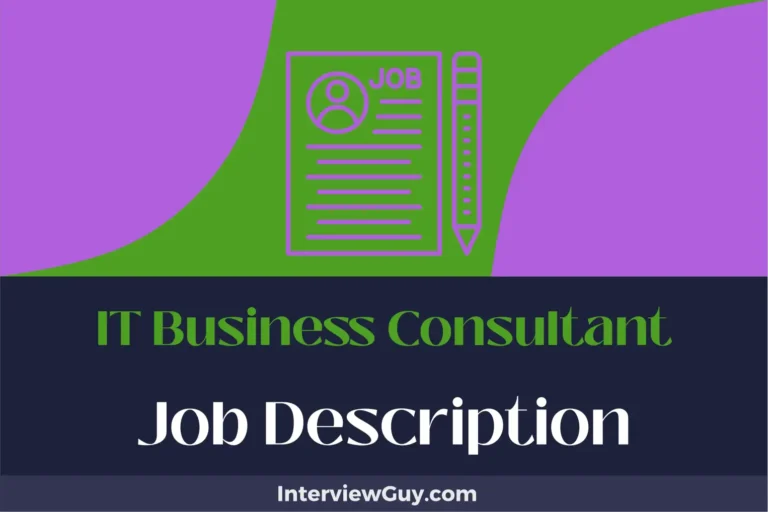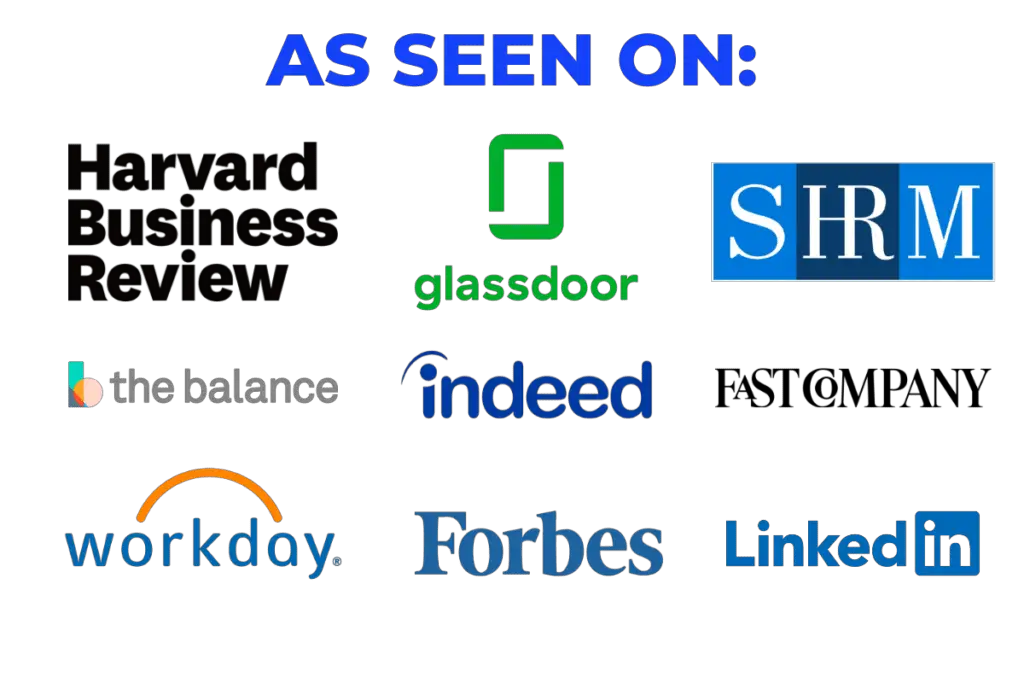

In the modern business world, the demand for Commercial Loan Officers has never been higher.
As the financial landscape evolves, the call for proficient individuals who can navigate, cultivate, and secure our commercial lending processes is mounting.
But let’s delve deeper: What’s truly expected from a Commercial Loan Officer?
Whether you are:
You’re in the right place.
Today, we present a customizable Commercial Loan Officer job description template, crafted for effortless posting on job boards or career sites.
Let’s dive right in.
Contents showCommercial Loan Officers are responsible for assisting businesses in obtaining loans, helping in the evaluation of the financial condition of their company and advising on the best type of loan and terms.
They work closely with clients to gather and analyze financial information and present loan proposals to financial institutions.
Their main duties and responsibilities include:
We are seeking a detail-oriented and experienced Commercial Loan Officer to assist in our financial planning efforts.
The Commercial Loan Officer will be responsible for meeting with business clients, evaluating, authorizing and recommending approval of commercial loans.
Our ideal candidate has a strong understanding of business financials, excellent interpersonal skills, and extensive experience in commercial lending.
Ultimately, the Commercial Loan Officer will facilitate business growth and development through the provision of appropriate loan facilities while ensuring the organization’s profitability.
Commercial Loan Officers are financial professionals who work for banks, credit unions, and other financial institutions.
Their primary role is to assist businesses in obtaining loans and other forms of credit.
They typically review loan applications, analyze the financial health of the business, and determine the risk level of lending money to the business.
This may involve examining the company’s balance sheets, income statements, and cash flow statements to determine the company’s creditworthiness.
Commercial Loan Officers may also be responsible for recommending different loan options and explaining the terms and conditions of loans to their clients.
This often requires a deep understanding of various loan products and financial legislation.
In addition, they manage relationships with their clients, which includes addressing any issues or concerns and providing updates on loan status.
Their job also entails negotiating loan terms and conditions, and presenting loan agreements for approval by the lending institution.
Post-approval, they continue to monitor the loans they have issued, ensuring that repayments are made on time and taking action in case of defaults.
Overall, a Commercial Loan Officer plays a crucial role in supporting businesses’ financial needs and managing the risk for lending institutions.
A Commercial Loan Officer should exhibit a wide range of skills and qualifications that are essential for the role, including:
Commercial Loan Officer positions generally require a bachelor’s degree in finance, business, or a related field as a minimum educational requirement.
Entry-level Commercial Loan Officer positions may require 1 to 2 years of experience in a banking or financial institution, often gained through internships or part-time roles.
These professionals usually gain on-the-job experience in roles such as Credit Analyst, Loan Processor, or other finance-related roles.
Candidates with more than 3 years of experience often develop their financial analysis skills and knowledge in entry-level Commercial Loan Officer roles or similar positions.
Those with more than 5 years of experience are typically expected to have an understanding of commercial lending policies and procedures, as well as experience in underwriting and evaluating commercial loans.
In addition, they may have some leadership experience and may be prepared for a managerial or team-lead position.
Additionally, many financial institutions prefer Commercial Loan Officers to have Certified Public Accountant (CPA) or Chartered Financial Analyst (CFA) designations.
These certifications demonstrate a higher level of expertise and can provide a competitive edge in the job market.
Commercial Loan Officers typically require a bachelor’s degree in finance, economics, business, or another related field.
These programs provide a foundation in financial concepts, business strategies, and economic theories that are crucial for this role.
Many loan officers also gain practical experience through internships in banks or financial institutions during their study, which can be beneficial in their job search after graduation.
In addition to formal education, Commercial Loan Officers often need to be licensed, especially if they work for a mortgage company or bank.
This generally involves meeting certain education requirements and passing an exam.
Some Commercial Loan Officers may also pursue a master’s degree in business administration or finance to enhance their career prospects and advance to managerial positions.
Additional certification programs, like the Certified Lender Business Banker (CLBB) certification, can also be beneficial.
These programs help to demonstrate the candidate’s expertise in the field and show their commitment to continuous learning and professional growth.
Understanding of regulatory compliance and lending standards is also essential for a Commercial Loan Officer.
This can be gained through on-the-job training, self-study, or through industry-specific training programs.
A Commercial Loan Officer earns an average salary of $79,834 (USD) per year.
The exact earnings may fluctuate based on the individual’s experience, the scale of the company they work for, and the region in which they operate.
A commercial loan officer should have exceptional communication and interpersonal skills to build robust relationships with clients.
They should have strong analytical skills to assess the financial status of businesses, understand market trends, and make informed decisions.
Proficiency in using financial software, understanding loan underwriting, and risk analysis are also essential.
Yes, most commercial loan officers need a bachelor’s degree in finance, business, economics, or a related field.
Some positions might require a master’s degree in business administration (MBA).
Additionally, many employers prefer candidates with relevant work experience in banking, sales, or customer service.
A commercial loan officer resume should include their educational background, particularly if it is in a relevant field.
It should also detail their experience in the banking or financial industry, emphasizing roles that involved loan procedures, customer service, or sales.
The resume should also highlight skills such as financial analysis, risk assessment, negotiation, and customer relationship management.
A good commercial loan officer is one who is detail-oriented and has a knack for numbers and finance.
They should have excellent decision-making skills and the ability to assess risks accurately.
They should be capable of building and maintaining strong relationships with their clients.
Additionally, they should exhibit professionalism and integrity in all their dealings.
Commercial loan officers generally start their careers in entry-level positions within the banking or finance sector.
With experience, they can move into more advanced roles, including senior loan officer, lending manager, or branch manager.
Some may choose to specialize in a specific type of lending, such as real estate or small business loans.
Further professional development and certifications can lead to positions like the vice president of commercial lending.
Conclusion
And there we have it.
Today, we’ve delved into the fascinating world of a commercial loan officer.
What’s the twist?
It’s not just about approving loans.
It’s about shaping the financial future, one approved loan at a time.
With our handy commercial loan officer job description template and real-life examples, you’re well-equipped to make your move.
But why stop at that?
Immerse yourself further with our job description generator. It’s your ultimate guide to crafting impeccable listings or refining your resume to perfection.
Every approved loan is a piece of a larger financial puzzle.
Let’s shape that future. Together.
The Editorial Team at InterviewGuy.com is composed of certified interview coaches, seasoned HR professionals, and industry insiders. With decades of collective expertise and access to an unparalleled database of interview questions, we are dedicated to empowering job seekers. Our content meets real-time industry demands, ensuring readers receive timely, accurate, and actionable advice. We value our readers' insights and encourage feedback, corrections, and questions to maintain the highest level of accuracy and relevance.

![Control System Engineer Job Description [Updated for 2024]](https://interviewguy.com/wp-content/uploads/2024/05/control-system-engineer-job-description-768x512.webp)
![AWS Senior Solutions Architect Job Description [Updated for 2024]](https://interviewguy.com/wp-content/uploads/2024/03/aws-senior-solutions-architect-job-description-768x512.webp)


![Cruise Ship Trumpet Performer Job Description [Updated for 2024]](https://interviewguy.com/wp-content/uploads/2024/05/cruise-ship-trumpet-performer-job-description-768x512.webp)
InterviewGuy.com is founded by a team of seasoned interviewers and hiring managers with decades of experience conducting job interviews. With over 50 years of combined experience screening and hiring top talent, we've seen pretty much every interview question under the sun. Our mission is to share that collective insider knowledge and help candidates at all stages of their careers land their dream jobs. Whether you're preparing for your first or your fiftieth interview, we've got you covered with comprehensive guides on how to answer the interview questions you're likely to face.

Where Job Seekers Become Job Getters!
Mission: To empower job seekers with comprehensive resources and expert advice to excel in interviews.
Vision: To be the ultimate interview preparation destination for candidates worldwide.